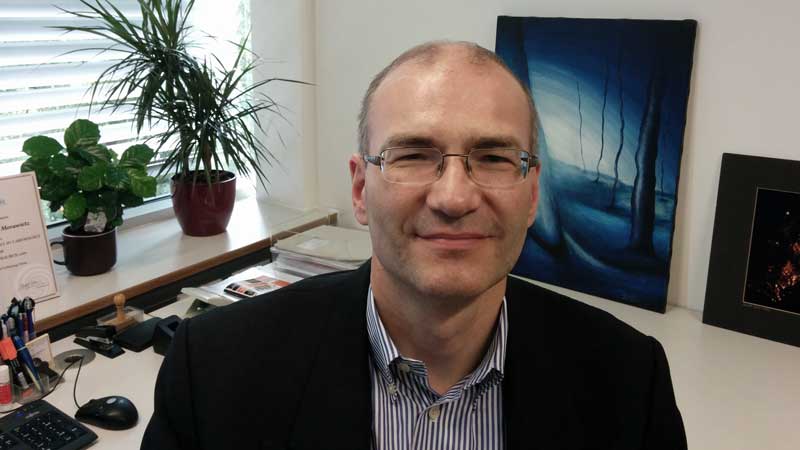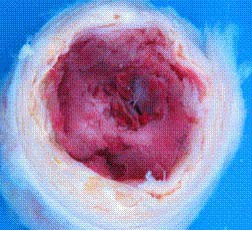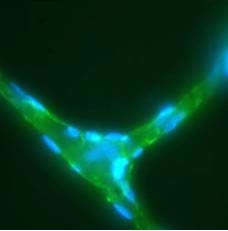Henning Morawietz Group
Endothelium and cardiovascular diseases

Cardiovascular diseases are the major cause of mortality in the industrial countries. Arteriosclerosis is considered to play a key role in this process, because the progression of this disease increases the risk of hypertension, coronary artery disease, heart attack and stroke. The endothelial cells form the inner layer of the blood vessels and play an important in the development and progression of arteriosclerosis.
Local differences in hemodynamic forces acting by the flowing blood on the cells of the vessel wall have been postulated as a putative mechanism for the localization of arteriosclerotic plaques. One major focus of our research is therefore the identification of molecular changes in response to different hemodynamic forces in human endothelial cells. A second research focus is the investigation of putative proarteriosclerotic mechanisms like increased NADPH oxidase-dependent oxidative stress or augmented uptake of oxidized low-density lipoprotein in endothelial cells. We are interested in the mechanisms of the arteriovenous differentiation of endothelial cells and the formation of new blood vessels. Additional directions of the research are the adrenal gland with special focus on aldosterone, retinal diseases and the impact of risk factors like obesity, smoking, and diabetes on cardiovascular diseases.
We extend our in vitro studies in experimental and clinical studies in vivo and analyze the putative antiarteriosclerotic potential of pharmacological intervention in the renin-angiotensin-aldosterone system or lipid-lowering drugs.
Future Projects and Goals
Endothelial cells play a major role in the development and differentiation of the vascular system. The development of a functional vascular system is also a crucial step in survival of regenerating tissue. Risk factors like oxidative stress, smoking, and low-density lipoproteins can accelerate endothelial dysfunction and arteriosclerosis. In further studies, we will try to understand the molecular mechanisms underlying these processes and develop therapeutic strategies in the treatment of cardiovascular diseases. Using techniques of molecular and cell biology, transgenic models and clinical studies we will try to answer the following questions:
- How do risk factors like obesity, smoking, and diabetes potentiate cardiovascular diseases?
- Is the increased formation of reactive oxygen species and oxidized lipoproteins involved in these processes?
- How differentiate endothelial cells into an arterial or venous phenotype?
- What are the molecular mechanisms of the formation of new blood vessels?
Methodological and Technical Expertise
- Primary cultures of human endothelial cells
- Application of biomechanical forces (shear stress, cyclic strain) on cells
- Promoter deletion studies and transcription factors
- Experimental models of endothelial dysfunction, obesity and diabetes
- Clinical studies

